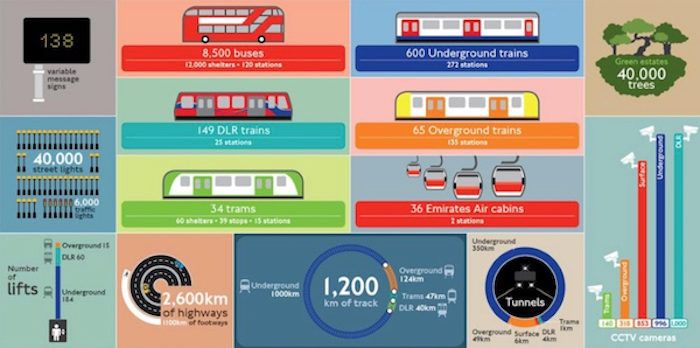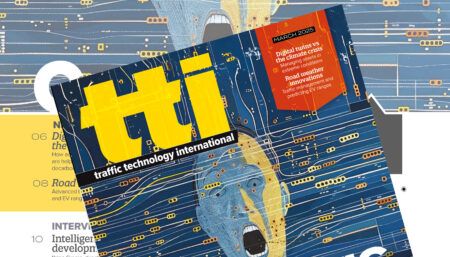In a new collaboration between Transport for London (TfL) and German automotive technology provider Bosch, small businesses and startups will have the opportunity to work with renowned experts and use cutting-edge data to develop new and innovative transport solutions.
An 18-month pilot program will match leading technical experts from TfL and Bosch with a range of small businesses and startups, to help understand how data and technology could be used to solve key transportation issues.
These will include more efficient, greener and safer vehicles, reducing congestion, and encouraging more people to walk, cycle and take public transportation across the UK capital. Throughout the collaboration, TfL will provide technical knowledge and a wide range of datasets to enable companies to test ideas and understand patterns in more detail than has previously been possible.
This data will be based on TfL’s existing Unified API (Application Programing Interface) and open data platform, which already helps to power nearly 700 apps that are used by 42% of Londoners.
In return, Bosch will dedicate urban mobility professionals to provide technical expertise, guidance and mentoring. Bosch will also provide dedicated space for TfL and selected startups within the company’s new ‘Connectory’ facility in Shoreditch. This new innovation lab is the first of its kind with a primary focus on urban mobility, and will provide the forum for private sector partners, academia, and the public sector to work together to tackle a range of problems facing Londoners in years to come.
In the last decade, the city’s population has continued to grow, with latest forecasts predicting it will reach 10.8 million by 2041, which will generate around six million additional trips every day.
The Connectory will also be used by a range of other companies, enabling greater opportunity for collaboration and knowledge-sharing that was not previously possible for small businesses working alone. By facilitating closer collaboration, TfL and Bosch hope to support startups to develop a range of smart products and help them identify ways to bring them to market more quickly through open procurement.
Subject to the success of the pilot program, similar approaches may be taken to other aspects of the Greater London Authority’s work including housing, environment and policing, with a focus on delivering objectives within the Mayor’s London Plan.
London has a track record in world-leading innovation in transport and mobility, from the introduction of contactless payments to the trialling of autonomous vehicles in the Queen Elizabeth Olympic Park and the London Borough of Greenwich.
Earlier this year, London Mayor Sadiq Khan launched his ‘Smarter London Together’ roadmap, which outlined five missions that will help make the city smarter and improve its ability to develop the best innovation created by the public and technology sectors across the city.
“If we are to use data and smart technology to help solve the biggest problems our city faces, it’s crucial we take a more collaborative approach,” said Khan. “I see London’s future as a global ‘testbed city’ for civic innovation, where the best ideas are developed, amplified and scaled.”





